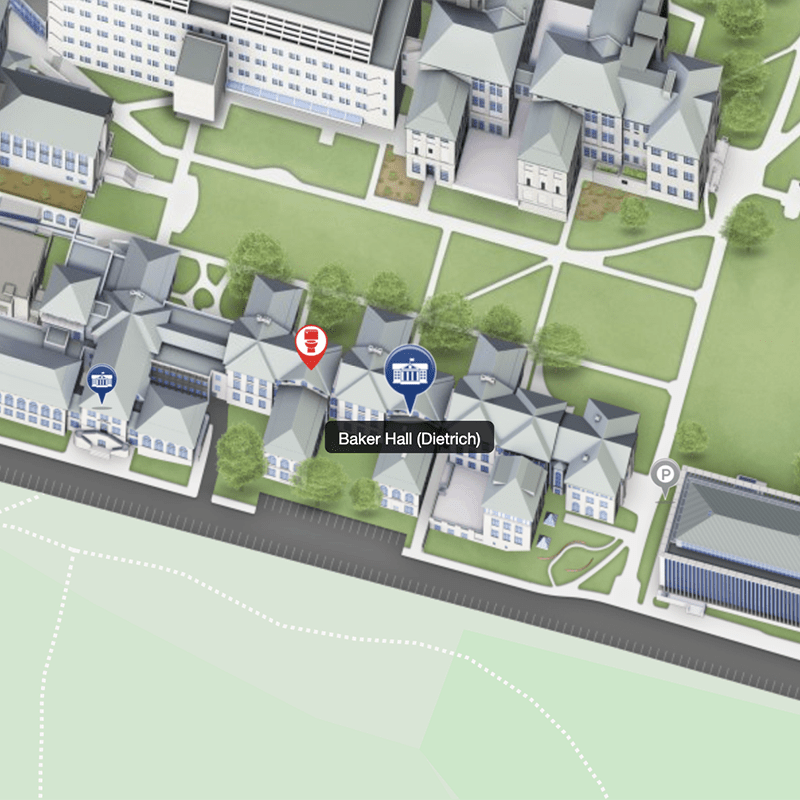2023-2024 Lectures & Colloquia
Spring 2024
Friday, March 15, 2024
Saira Khan, University of Pittsburgh
Talk Title: Coarse-grained Theories of Cooperation: Lessons from Myxobacteria
Abstract: Many theories have been offered to explain why organisms have evolved to cooperate with one another. These include kin selection, reciprocal altruism, indirect reciprocity, group selection, and commitment, among others. In this talk, I will demonstrate that such theories fail to explain some social phenomena. As a case study, I will consider the cooperative predation of a particular strain of myxobacteria known as Myxococcus xanthus. I argue that cooperation in M. xanthus predation cannot be sustained by the same mechanisms proposed to account for cooperation in other areas of its lifecycle (kin selection, signalling and punishment). Part of the reason lies in a possible mischaracterisation of the cooperative problem at hand. Another part lies in the insensitivity of these theories to ecological and genomic context. These insights provide important lessons for our use of simplified models to explain real-world behaviours in a variety of organisms.
Friday, April 19, 2024
Benjamin McKean, The Ohio State University
Sponsored by the Center for Ethics & Policy
Talk Title: How to Blow Up Climate Despair
Abstract: Is hope a prerequisite to political action against climate catastrophe? Is despair of making no difference a major obstacle to such action? At one pole, philosophers including Catriona McKinnon and ecologists like Andreas Malm argue that we need to demonstrate the efficacy of individual action today to thwart despair. At the other pole, philosophers like Allen Thompson draw from Jonathan Lear’s conception of “radical hope” to argue that we have reason to be hopeful about a future beyond our present understanding. I evaluate these strategies and argue their shortcomings point to the need for a different approach.
The “efficacy” approach has two important flaws. First, it doesn’t engage effectively with our contemporary political context, in which few people have experience of political efficacy. Second, the efficacy framework lacks an adequate moral psychology, which I show through an analysis of Malm’s critique of pacifism. The “radical hope” approach likewise faces two problems. First, as I show through a reading of Lear’s critique of Sitting Bull, the “radical hope” approach lacks sufficient resources for making political judgments. Second, radical hope is predicated on the idea that the world is of such abundant goodness that future people will find new instantiations of what we find good today. But climate despair concerns our apparent inability to transition out of the present rather than our inability to imagine a good future. The paper concludes by arguing for a more present-oriented approach to motivation.
Fall 2023
Friday, December 8
Amanda Friedenberg, University of Michigan
Talk Title: “Two Approaches to Iterated Reasoning” with Brandenburger and Kneeland
Abstract: Level-k analysis and epistemic game theory are two iterative approaches in games. This paper explores the relationship between these two. An important difference between them is that level-k analysis begins with an exogenous anchor on the players’ beliefs, while epistemic analysis begins with arbitrary epistemic types (hierarchies of beliefs). To close the gap, we develop the concept of a level-k epistemic type structure, that incorporates the exogenous anchor. We also define a complete level-k type structure where the exogenous anchor is the only restriction on hierarchies of beliefs. One might conjecture that, in a complete structure, the strategies that can be played under rationality and (m − 1)th-order belief of rationality are precisely those strategies played by a level-k player, for any k ≥ m. In fact, we prove that the strategies that can be played are the m-rationalizable strategies (i.e., the strategies that survive m rounds of elimination of strongly dominated strategies). This surprising result says that level-k analysis and epistemic game theory are two genuinely different approaches, with different implications for inferring the players’ reasoning about rationality from their observed behavior.
Please contact Tom Werner if you have any questions or concerns.
Friday, September 8
Steve Awodey, Carnegie Mellon University
Talk Title: Homotopy Type Theory
Abstract: A new branch of logic called Homotopy Type Theory was founded in the Philosophy Department at CMU and has flourished there in the intervening 15 years. This talk will survey the historical, philosophical, and logical background leading up to the invention of HoTT, and trace some of the challenges and advances that have marked its subsequent development. This is a non-technical talk, intended for a general audience.
